Search
Search Results

Image
Part of Tablet V, the Epic of Gilgamesh
A newly discovered partially broken tablet V of the Epic of Gilgamesh: "the episode of the journey of Gilgamesh and Enkidu." According to Professor Farouk Al-Rawi (of the School of Oriental and African Studies, University of London), this...

Image
Mesopotamian Beer Rations Tablet
The temples issued workers with daily rations of barley beer, the staple drink of Mesopotamia. The tablet was impressed with five different types of numerical symbol. From Mesopotamia, Iraq. Late Uruk Period, 3100-3000 BCE. (The British Museum...
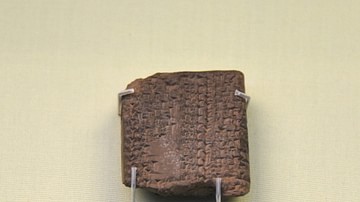
Image
Mesopotamian Tablet on Marduk
Babylonian tablet, a scholar speculating on how powerful, independent Mesopotamian gods can be seen as aspects of the god Marduk. From Babylon, Southern Mesopotamia, Iraq. Neo-Babylonian Period, reign of Nebuchadnezzar II, 605-562 BCE. The...
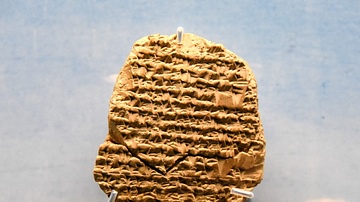
Image
E-sagil Tablet & Building the Tower of Babel
This tablet states the dimensions of each of the seven levels of Etemenanki, the ziggurat of Marduk at Babylon. This building is the Tower of Babel in the Book of Genesis. From Babylon, Southern Mesopotamia, Iraq. Circa 600-400 BCE. (The...
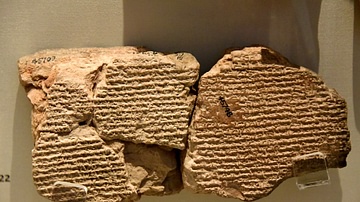
Image
Tablet Describing Parthian Conquest of Babylonia
This tablet is written in cuneiform inscription and refers to the defeat of the Seleucid king Demetrius II Nicator by the Parthian ruler Mithradates I in 141 BCE. The Parthian ruler is referred to as Arshaka. The text also refers to market...
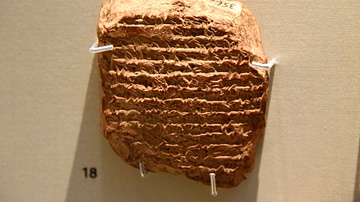
Image
Tablet with Hellenistic King List
Written in Babylonian in the cuneiform inscription, this tablet lists the names and dates of several Seleucid kings. After Alexander's death, the Persian Empire fractured. Mesopotamia and Syria became part of the Seleucid Empire, with their...
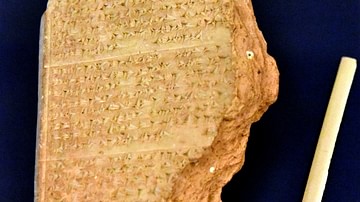
Image
Epic of Gilgamesh Tablet from Hattusa
The cuneiform inscription on this clay tablet (VAT 12890) narrates part of the Epic of Gilgamesh (written c. 2150 - 1400 BCE). The obverse of this tablet relates the second dream of Gilgamesh on the journey to the Forest of Cedar, and part...
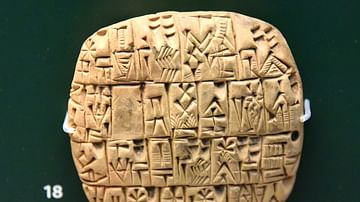
Article
Hymn to Nisaba
The Hymn to Nisaba (c. 3rd millennium BCE) is a poem praising Nisaba, the Sumerian goddess of writing and accounts who also served as scribe of the gods. The poem is officially dedicated to Enki, the god of wisdom (sometimes given as her...
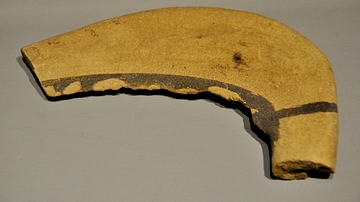
Image
Clay Sickle
This cutting tool witnessed the beginning of agriculture. Ubaid period, 5th millennium BCE, Mesopotamia, Iraq. (The Sulaimaniya Museum, Iraq).
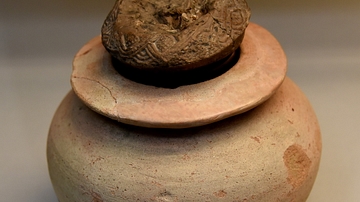
Image
Sealed Clay Jar Stopper
Two officials certified the contents of the jar that was sealed with this stopper. Impressions of fingers and a thumb are visible on the top. The stopper is displayed here on a similar jar dating from about the same period. Jemdet Nasr period...